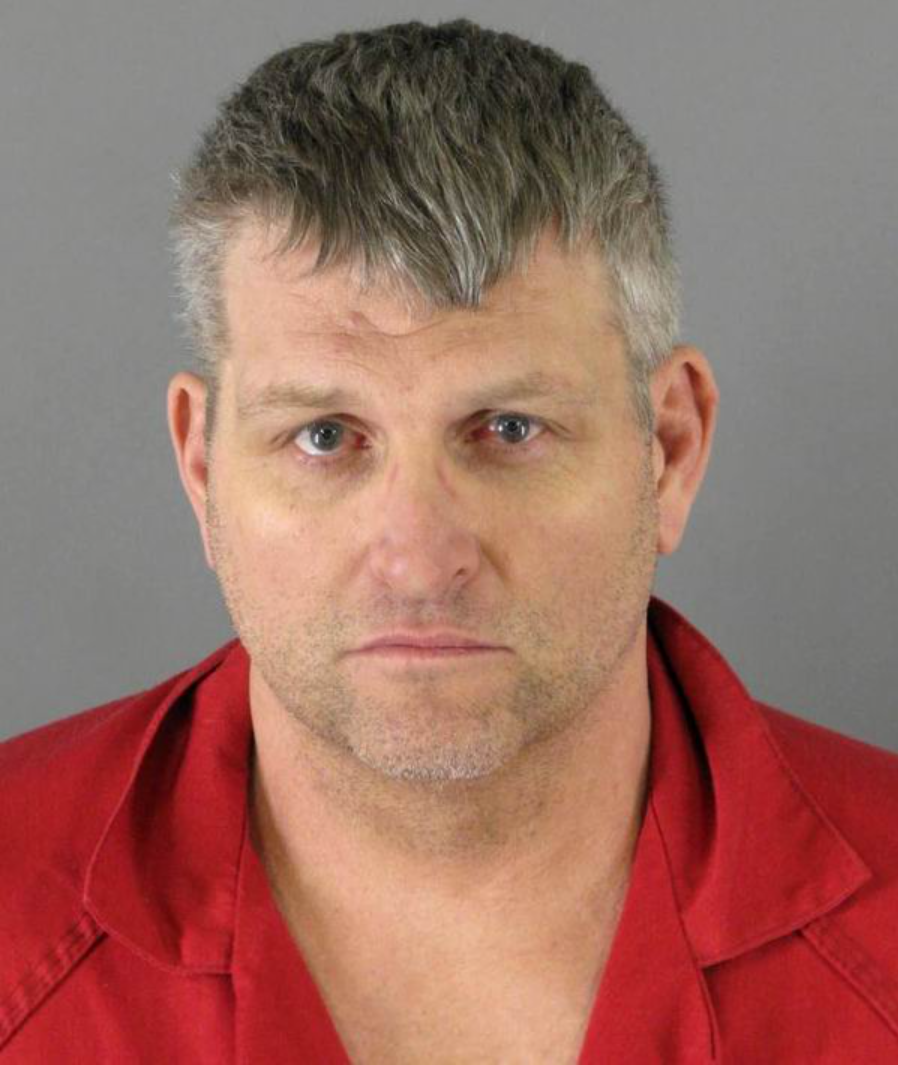‘Happy Face Killer’ says he’s pen pals with Gilgo Beach murders suspect
Keith Jesperson urged Rex Heuermann to confess to his crimes but the suspected killer’s instead complained about jail conditions
A man known as the “Happy Face Killer” says he reached out to the suspected Gilgo Beach serial killer and urged him to confess to his heinous crimes.
Keith Jesperson, now 68, has been incarcerated at the Oregon State Prison since 1995, where he is serving a life sentence for the murders of at least eight women. His nickname comes from the smiley faces he drew on the many letters he has sent to the media and to the authorities over the years.
He recently told podcaster Keith Rovere, who specialises in interviewing serial killers, that he has a new pen pal – Rex Heuermann, a 59-year-old Long Island man who is accused of killing at least three women between 2010 and 2011.
Jesperson wrote several letters to Mr Heuermann, including one dated on 31 August.
Finally, Jesperson says Mr Heuermann responded.


The suspected killer thanked Jesperson for his advice that he should “confess to avoid giving prosecutors the chance to ‘gloat’ about finding evidence,” according to the letter shared with The Independent.
Mr Heuermann was arrested in July after a years-long investigation into the Gilgo Beach murders. He is now charged with murder in the deaths of Melissa Barthelemy, 24; Megan Waterman, 22; and Amber Lynn Costello, 27.
He has also been named the prime suspect in the murder of 25-year-old Maureen Brainard-Barnes – who was last seen alive in early June 2007 in New York City.
Mr Heuermann, who most recently appeared in court on 15 November, allegedly told Jesperson in the letter that he had been busy in the weeks since his initial arrest. He also pointed out to Jesperson that he was the only person he had replied to.

Rovere said Jesperson then sent him the letter, in which he said Mr Heuermann thanked him for his “letters and advice.”
“They have been a help and comfort to me,” Mr Heuermann allegedly wrote. “I do understand what you have said and taken it to heart.”
Mr Heuermann then launched into a rant about the harsh jail conditions and seemed more concerned with whether or not he would have butter for his bread once he’s moved to prison, Rovere told The Independent.
“You were right about letter – I have gotten a number of them, asking for interviews, to be friends, pen pals, and one guy who sent me three letters asking me to write back to add to his collection of letters,” Heueremann allegedly wrote.
“So it sounds like OSP is not such a bad place to be. Do you have butter for your bread? How is the day-to-day food – I will admit that food on SCCF is not much to look forward to each day.
“Also yard is just walking in circles outside,” he added.
The letter purportedly came in response to Jesperson’s multiple letters to the suspected killer. He told Rovere that Heuremann would likely write to him again.
“The message I’m sending him is to own it,” Jesperson said. “They want the letter to get to him. They want him to listen to this guy who is telling him how the system is. So when you finally get to it, the police can go out and solve all the other cases with him.”
“So that’s what I’m telling him to do: don’t hold anything back.”
Jesperson also said that Mr Heuermann should confess to avoid the spectacle of a trial, and that he should try to get transferred to prison more quickly - and that those conditions are better than they are in jail, Rovere explained.
“You now get into a routine: you already know what your convictions are, you’re set up,” he said.
“The food is different. The food is better in prison,” he added. “You know what? He’s worried about butter on his gray. Well, he’ll get larger.”
Rovere, who launched his podcast The Lighter Side of Serial Killers and has spoken to Jesperson several times over the years, said his intent is not to glamourize serial killers, but to instead bring awareness to the lack of rehabilitation in the justice system.
“In some cases, this may be a person who will be released one day and could be your neighbor,” he said. “Would you want this person to be the same person they were when they went in? Or someone who has been shown kindness and love.”

The letter comes just days after NewsNation reported that Mr Heuermann’s family is set to make more than $1m from a documentary in the works.
Mr Heuermann’s estranged wife, Asa Ellerup, and their two adult children, Victoria and Christopher, have reportedly sold their life rights for the documentary on NBCUniversal-owned Peacock streaming network, reported the outlet.
His lawyers are also reportedly receiving payments for taking part in the documentary.
The four victims, together known as the “Gilgo Four”, all worked as sex workers and disappeared after going to meet a client.
Their bodies were found in December 2010 within one-quarter mile of each other, bound by belts or tape and some wrapped in burlap – all dumped along Gilgo Beach.
In total, the remains of 11 victims were found along the shores of Long Island in 2010 and 2011, sparking fears of one or more serial killers.
The case began back in May 2010 when Shannan Gilbert, a young woman working as a sex worker, vanished after leaving a client’s house on foot near Gilgo Beach. She called 911 for help saying she feared for her life and was never seen alive again.
During a search for Gilbert in a dense thicket close to the beach, police discovered human remains. Within days, four victims had been found. By spring 2011, the number of victims rose to 10.
Gilbert’s body was then found in December 2011. Her cause of death is widely contested with authorities long claiming that it is not connected to the serial killer or killers but that she died from accidental drowning as she fled from the client’s home.
However, an independent autopsy commissioned by her family ruled that she died by strangulation and her family continues to believe she was murdered.
No charges have been brought in connection to the other victims also found along the shores.
Court records show that Mr Heuermann was linked to the “Gilgo Four” murders through a tip about his pickup truck, a stash of burner phones, “sadistic” online searches and phone calls taunting victims’ families.
His DNA was also found on one of the victims, while his wife’s hair was found on three of the four women he is connected to, according to prosecutors.
Investigators are continuing to work to determine if Mr Heuermann is also linked to any of the other victims – while law enforcement officials across the country are probing cold case murders for any potential ties.
Bookmark popover
Removed from bookmarks